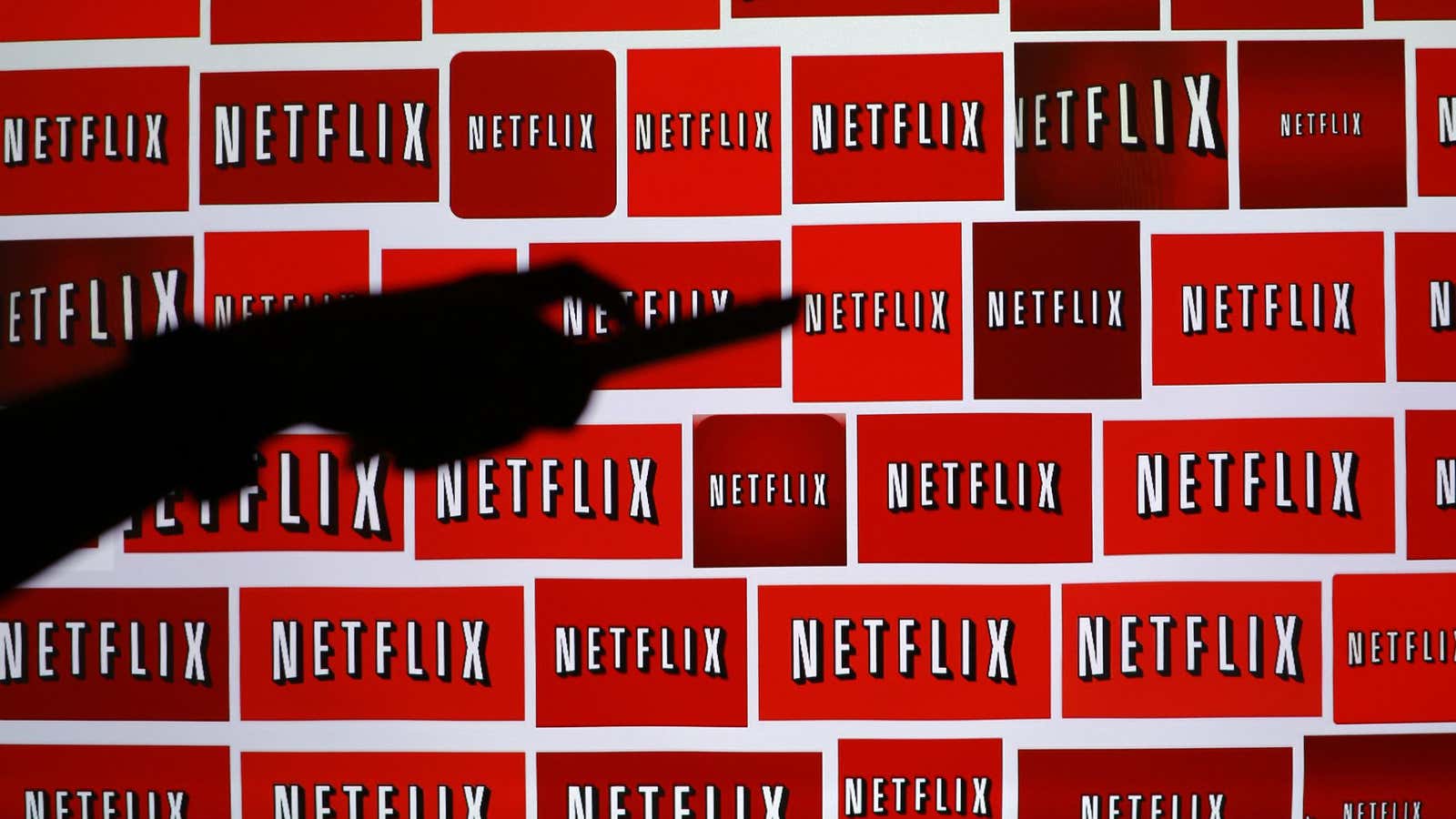This post has been updated.
For the year or so that I subscribed to Netflix from my base in London, I paid a dollar amount to a US-registered company and used third-party software to access the American version of the site. I was far from the only one. Now, Netflix appears to be cracking down on people like me.
According to a report from TorrentFreak, a website covering copyright and piracy matters, Netflix is blocking access for users who come in via web proxies or virtual private networks (VPNs). Update: A Netflix spokesperson says the TorrentFreak report is “entirely incorrect,” adding, “We use industry standard techniques to thwart illegal VPN usage and haven’t adopted or tested any new methods recently.”
Whether its methods are new or not, it is crucial that Netflix and other providers of online streaming services take VPN use seriously. Such services allow users to disguise their locations, making it appear as though a British user is accessing the web from an American computer, for example. I let my subscription to Netflix lapse months ago, but while I had it, I used “Hola,” a popular extension that allows you to choose what country you wish to display as your origin.
The reason for this rather roundabout means of access is the manner in which entertainment companies license their content. Films and television shows are sliced and diced into dozens of licenses, all of which can be sold piecemeal to maximize revenue. Thus a single show may have broadcast rights sold separately to terrestrial broadcasters, cable channels, video-on-demand providers, and online services in different countries. These rights may be exclusive, non-exclusive, or exclusive within a limited timeframe. They may be exclusive on one medium but not another. The permutations and combinations are mind-boggling.
In short, just because Netflix owns the rights to stream a show in the United States, that doesn’t mean it has the right to do anything else with it. I speak from personal experience when I say that the American selection is an order of magnitude better than what is available to us chumps here in Britain. Moreover, there are reportedly hundreds of thousands of Netflix subscribers from countries where the company doesn’t operate, such as Australia, using VPN services to disguise their locations and pay for the service.
That means the value of a piece of content—especially television shows, which spread to global television networks much slower than films do to worldwide screens—dips accordingly. Why should Australia’s Channel 9 pay full price for a season of Suits if half its prospective audience has already seen it online?
Netflix is in a real bind, says Tom Nener, an intellectual property lawyer at DWF in England. “On the one hand they say, ‘Our customers are happy. We’re not encouraging them but they’re fooling our geolocation.’ But on the other hand, they’re getting pressure from TV rightsholders and movie rightsholders to shut down.”
Halting this practice would be better for its suppliers and competitors than it is for Netflix, which in the short term stands to lose some dedicated subscribers. But if it does nothing, competitors like Amazon might point to their record of dealing with foreigner access as a way to win exclusive content that Netflix otherwise might have had a shot at getting. And for Netflix, long term, jeopardizing access to content is the far greater risk.
